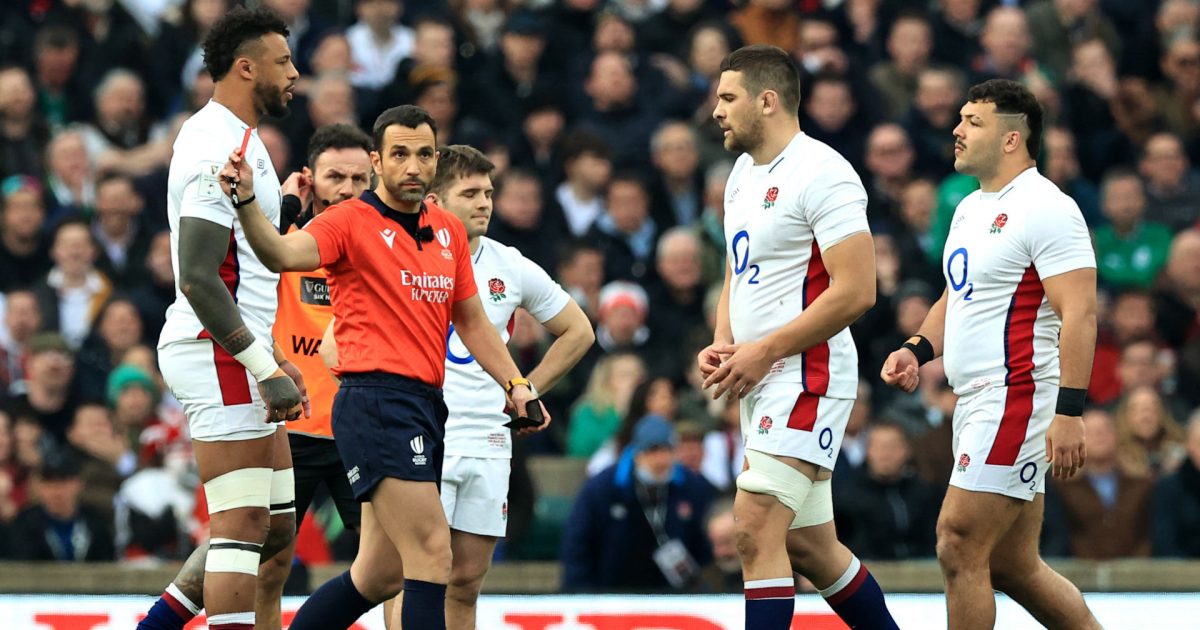The stat that shows World Rugby tackle school is actually working

A World Rugby review has highlighted that its tackle school initiative for suspended players is working. There had been criticism that the coaching intervention programme was a box-ticking exercise that allowed banned players to simply shave a week off their enforced time on the sidelines.
However, after conducting a stocktake of the tackle measure introduced in July 2021, the game’s global governing body has revealed that just eight of the 120 players who graduated from tackle school have reoffended since their ban.
This behavioural change will now result in the pilot programme becoming a permanent measure to encourage first-time red card tackle offenders to improve their technique.
A tackle school statement read: “World Rugby’s coaching intervention programme has been adopted into regulation after an initial global pilot successfully demonstrated positive player and coach behaviour change.
“Since its launch in July 2021, more than 100 players have successfully completed the programme which is designed to reduce head contact by incentivising players and coaches to practice tackle technique that carries a statistically lower injury risk, reducing the number of red cards over time.
"It is a red card, but the interesting thing is if you look just before the contact…"
– Nigel Owens has posed a very interesting question about the Danty collision that ended with Pieter-Steph du Toit getting banned for three games. #Springboks https://t.co/DFVRFXeyKp
— RugbyPass (@RugbyPass) November 17, 2022
“Under the programme, any player in elite rugby who has been sanctioned for the first time by a disciplinary panel for foul play involving contact with the head may apply to substitute the final week/match of their sanction for a coaching intervention. With the sport united in its unwavering commitment to player welfare, the latest statistics demonstrate that repeat offences are below ten per cent, highlighting the importance of technique to both welfare and performance outcomes:
- The programme aims to help reduce head contact by reducing the risk of foul play caused by poor technique;
- Coach and player behaviour change leading to positive outcomes;
- Programme is overseen by an expert panel of coaches, match officials and former players;
- 120 players have now successfully completed the programme;
- 94 per cent of players who have completed the programme haven’t repeat the offence.
“The tackle accounts for 73 per cent of head injury assessment events in the elite game of which 76 per cent occur to the tackler. The risk of concussion is more than four times greater when the tackler is upright in the tackle.
“Ingraining the importance of better (lower) tackle technique across the game, along with strong on-field sanctions and continual law evolution, it is possible to achieve stronger welfare outcomes. The coaching intervention programme is central to this approach.”
World Rugby director of rugby Phil Davies said: “From a coaching perspective, the tackle is fundamental to successful outcomes and practising good tackle technique can have welfare and performance benefits. Programmes such as the coaching intervention programme have enormous education and behaviour benefits and are as important to the coach as they are to the player.
“The coaching intervention programme is by no means a tick box exercise. In order to benefit from a shorter suspension, the coaching intervention must be a targeted and technique-focused measure, designed to analyse tackle/contact techniques and identify and implement positive modifications.
“We want to change the player’s behaviour and ultimately reduce the risk of injury to themselves and opponents. This intervention is reviewed and overseen by an independent expert coaching review group and can only be undertaken once per player.
“Of the 100-plus players who have been through the programme, eight have had further red cards. Those players can’t apply twice and they will generally then receive longer suspensions from the judicial process as a repeat offender.
“What we have seen in the 100-plus examples to date is a huge amount of transformative work being undertaken by participants and a genuine openness to change technique because of both the welfare and performance benefits of keeping players fit and on the field.”
England international Dan Kelly explained what tackle school did for him last year. He was cited for a foul tackle while playing for Leicester versus Saracens and his three-week ban was reduced by a week after he successfully completed the coaching intervention.
“I was glad I was able to take part in the programme,” he said. “It’s improved me as a player, and now, after doing the intervention, I’m better technically and overall, it’s bettered my game.”
Connacht coach Colm Tucker added: “I found the intervention opportunity really worthwhile. Following a player incident and subsequent one-to-one review, we began a three-step process and six-week plan on the back of our findings. It was also very beneficial to have an open dialogue with the independent assessor who I was able to speak with through the process.”
World Rugby CEO Alan Gilpin concluded: “The behavioural statistics and feedback have been overwhelmingly positive. It’s important to state that we are not saying that head contact is exclusively a player technique issue, as we will continue to work tirelessly to reduce the risk via law amendments and education, but good technique certainly contributes to reduced head injury risk, and we are encouraged that the players and coaches share this view.”








































